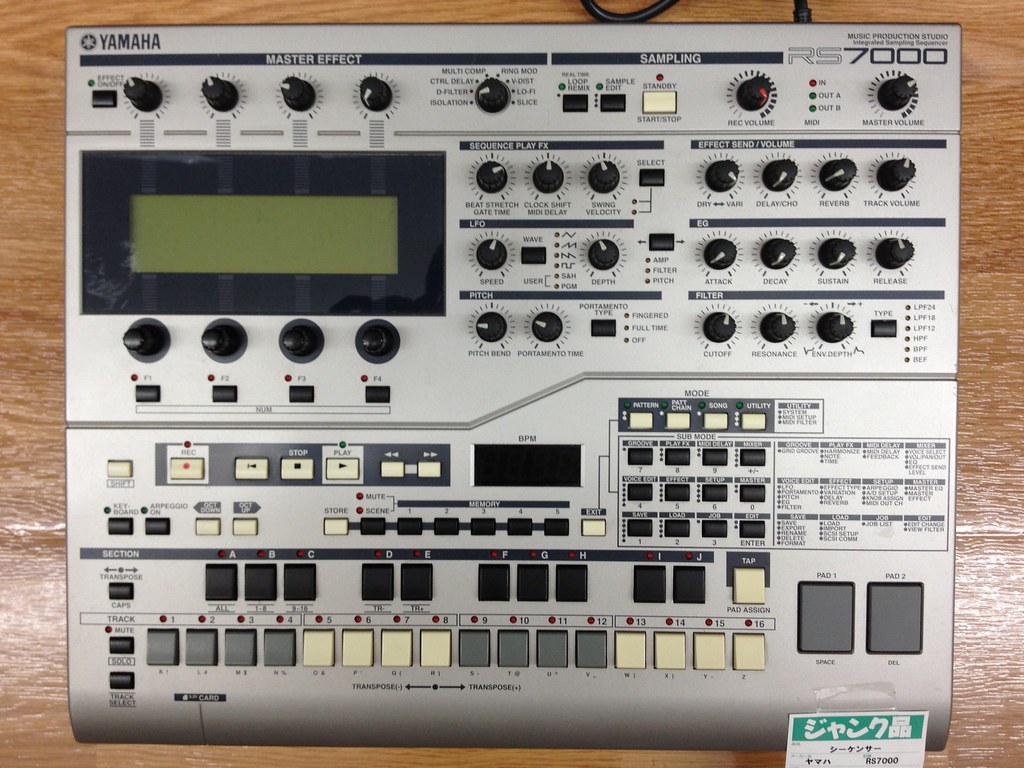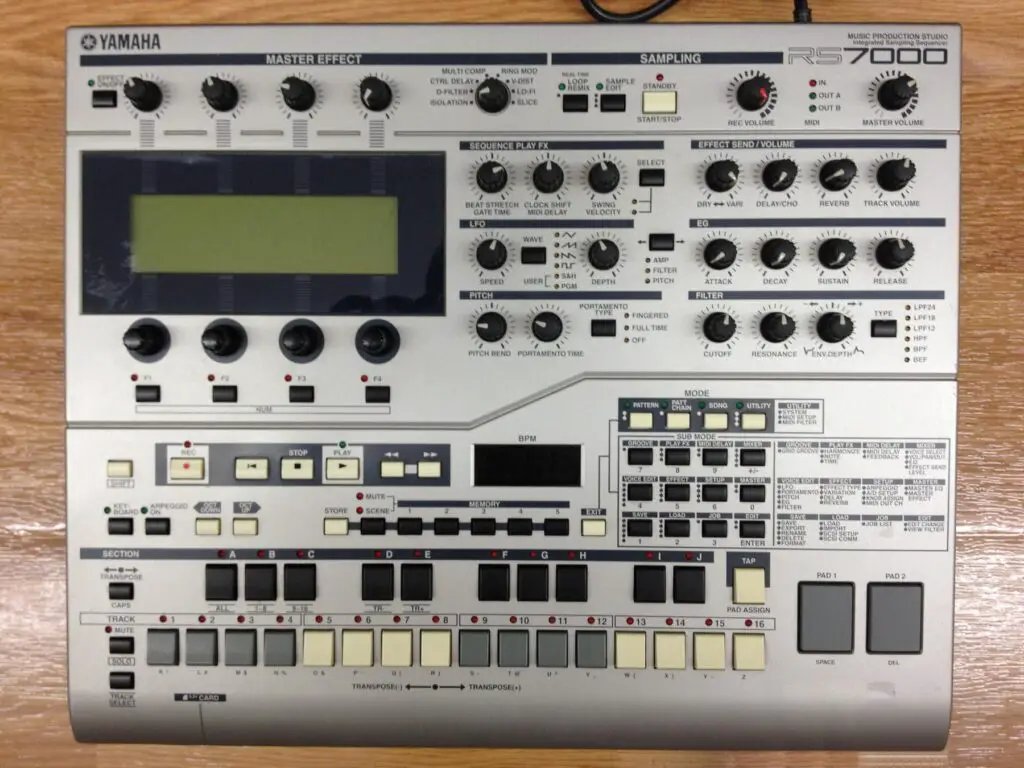Have you ever found yourself in the middle of a music production project, only to have your computer slow down and interrupt your creative flow? As a music producer, you know that time is of the essence when it comes to creating high-quality tracks. One factor that could potentially enhance your workflow is RAM. But just how much of an impact can RAM have on your music production process? In this blog post, we’ll explore the question of whether maximizing RAM can truly take your music production to the next level. So, let’s dive in and find out.
Table of Contents

Introduction: Understanding the Importance of RAM in Music Production
In the world of music production, having a powerful computer is essential to creating high-quality tracks. RAM (Random Access Memory) is one of the most important components of a computer that affects its performance. RAM is responsible for storing and accessing data that your computer needs to run programs, including music production software. The more RAM your computer has, the more efficiently it can handle multiple tasks at once. This means that having enough RAM can significantly enhance your workflow in music production. In this article, we will explore how RAM affects music production and the benefits of upgrading your RAM. We will also discuss the difference between RAM and CPU and provide tips for choosing the right RAM for your music production needs.
How RAM Affects Music Production: Exploring the Technical Details
RAM is a crucial component in music production as it directly affects the speed and efficiency of your workflow. When working with digital audio workstations (DAWs), RAM plays a significant role in the number of tracks, plugins, and effects you can use simultaneously without experiencing lag or crashes.
The amount of RAM you have determines how much data your computer can store and access quickly. The more RAM you have, the more information your computer can hold in its short-term memory, allowing for faster processing times. This is especially important when working with large audio files or running multiple applications at once.
In addition to the amount of RAM, the speed and type of RAM also impact performance. Faster RAM allows for quicker data transfer between the CPU and RAM, while certain types of RAM, such as DDR4, are designed specifically for high-performance tasks like music production.
Overall, having sufficient and high-quality RAM is essential for maximizing your music production workflow and ensuring smooth operation of your DAW.

The Benefits of Upgrading Your RAM for Music Production
Upgrading your RAM can significantly enhance your music production workflow. Having more memory allows you to load larger sample libraries and plugins without any lag, which is crucial when working on complex projects. The increased speed of data transfer also means that the software processes faster, improving overall performance and reducing loading times.
With bigger projects, it’s not just about having enough storage space but also having enough memory to process all the data efficiently. It prevents crashing when switching between instruments or running multiple programs at once while recording live performances in real-time.
Ultimately, upgrading your RAM increases stability during recordings and post-processing by preventing buffer underruns while mixing down a track or exporting large files for distribution. With improved speed and reliability, upgrading RAM should be a top priority for anyone looking to maximize their music production workflow.

RAM vs CPU: Which One Matters More for Music Production?
When it comes to music production, both RAM and CPU play essential roles in the overall workflow. RAM, however, has been known to have a more direct impact on enhancing productivity. While CPUs handle processing power, RAM handles the temporary storage of data needed by software applications during use. A higher amount of RAM allows for a larger number of active processes without lag or crashes.
That being said, having an extremely high amount of RAM won’t automatically make your system run faster. There is a threshold where adding additional RAM won’t provide significant improvements if other hardware components are lacking.
When comparing RAM vs CPU for music production purposes, it’s important to remember that they work together as key players in the process chain. However, upgrading your current system with more memory may lead to better performance enhancements than just investing in a new processor alone.
In conclusion- while both components are crucial; prioritizing sufficient amounts of high-quality memory should be considered early on when building or upgrading your computer for music production needs.

Tips for Choosing the Right RAM for Your Music Production Needs
Understanding the Role of RAM in Music Production
RAM plays a vital role in the music production process. It is responsible for storing and accessing data that your computer needs to run smoothly while you work on your projects. When selecting RAM, keep in mind the frequency, size, and latency of the memory modules. Higher frequencies generally mean better performance, but they can also be more expensive. The size of the module determines how many programs or plugins you can run simultaneously before experiencing slowdowns, crashes, and other issues related to insufficient memory space. Finally, make sure to balance between frequency and CAS latency since they both affect overall system performance.
Factors to Consider When Choosing RAM for Music Production
When choosing RAM for music production, it’s important to consider the speed and capacity of the RAM. The speed of the RAM is measured in MHz and determines how quickly data can be accessed and transferred. A higher speed RAM will result in faster load times and smoother performance. Capacity, on the other hand, refers to how much data can be stored in the RAM. For music production, it’s recommended to have at least 16GB of RAM to handle large files and multiple applications running simultaneously. It’s also important to ensure that the RAM is compatible with your computer’s motherboard and processor.
How Much RAM Do You Need for Optimal Music Production?
The amount of RAM you need largely depends on the type of music production you are doing. For basic music production, 8GB of RAM may be sufficient. However, if you are working on more complex projects with many tracks and virtual instruments, upgrading to 16GB or even 32GB can significantly improve your workflow and prevent crashes or slow-downs while working. It’s also important to consider the requirements of your specific DAW software and any plugins you use when determining how much RAM is necessary for optimal performance in music production.

Real-Life Examples: How RAM Enhances Workflow in Music Production
Increased Efficiency is one of the most significant benefits of having more RAM in your music production setup. With more RAM, you can load more virtual instruments and effects plugins without experiencing any lag or slowdowns. This means you can work faster and more efficiently, allowing you to focus on the creative aspects of music production.
Another benefit of having more RAM is Improved Stability. When working on large projects with multiple tracks and effects, your computer’s memory can become overloaded, causing crashes and other stability issues. By upgrading your RAM, you can avoid these problems and ensure that your workflow remains smooth and uninterrupted.
In addition to these benefits, having more RAM also allows for better multitasking capabilities. You can run multiple applications simultaneously without any performance issues, allowing you to switch between tasks quickly and easily. Overall, upgrading your RAM is a worthwhile investment for any music producer looking to maximize their workflow and efficiency.
In conclusion, RAM plays a crucial role in enhancing your music production workflow. With the right amount of RAM, you can improve your computer’s performance and reduce the risk of crashes or lagging. Upgrading your RAM can also lead to faster load times, smoother playback, and more efficient multitasking. While CPU is important, RAM is equally vital for music production. When choosing the right RAM for your needs, consider factors such as capacity, speed, and compatibility with your computer. By maximizing your RAM potential, you can take your music production to the next level.
If you found this article helpful, be sure to check out our other content on music production and technology. We offer a variety of resources to help you improve your skills and stay up-to-date with the latest trends in the industry. Thanks for reading!
Questions
Q: Who benefits from having more RAM in music production?
A: Music producers who work with large files and multiple tracks.
Q: What impact does RAM have on music production?
A: More RAM allows for smoother playback and faster processing.
Q: How much RAM is recommended for music production?
A: At least 8GB, but 16GB or more is ideal for professional use.
Q: What if I don’t have enough RAM for music production?
A: Consider upgrading your RAM or freezing tracks to reduce strain.
Q: How does RAM compare to other computer components for music production?
A: RAM is important, but a fast processor and storage are also crucial.
Q: Isn’t RAM expensive to upgrade?
A: RAM prices have decreased in recent years, and upgrading is often worth the investment.

